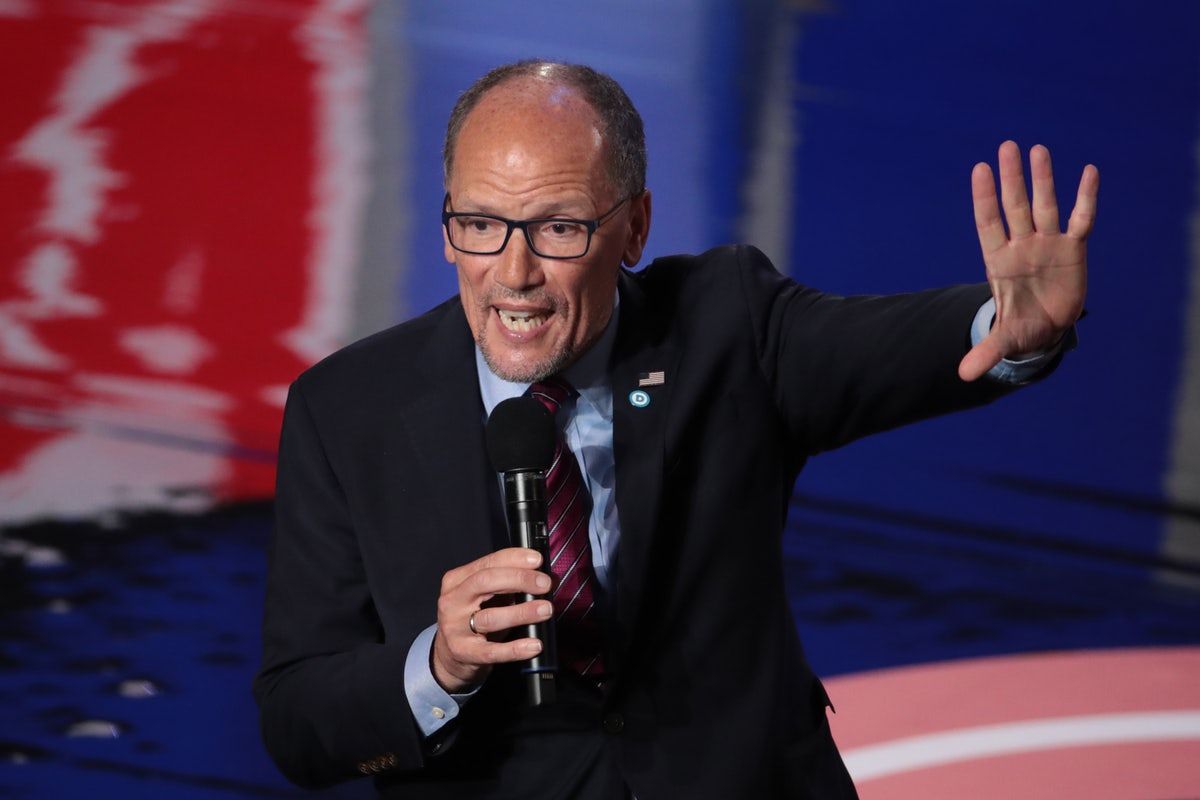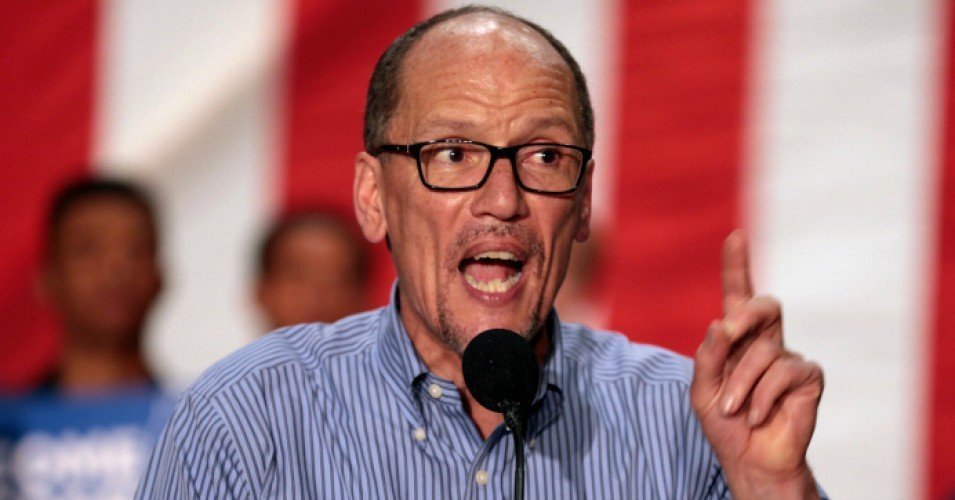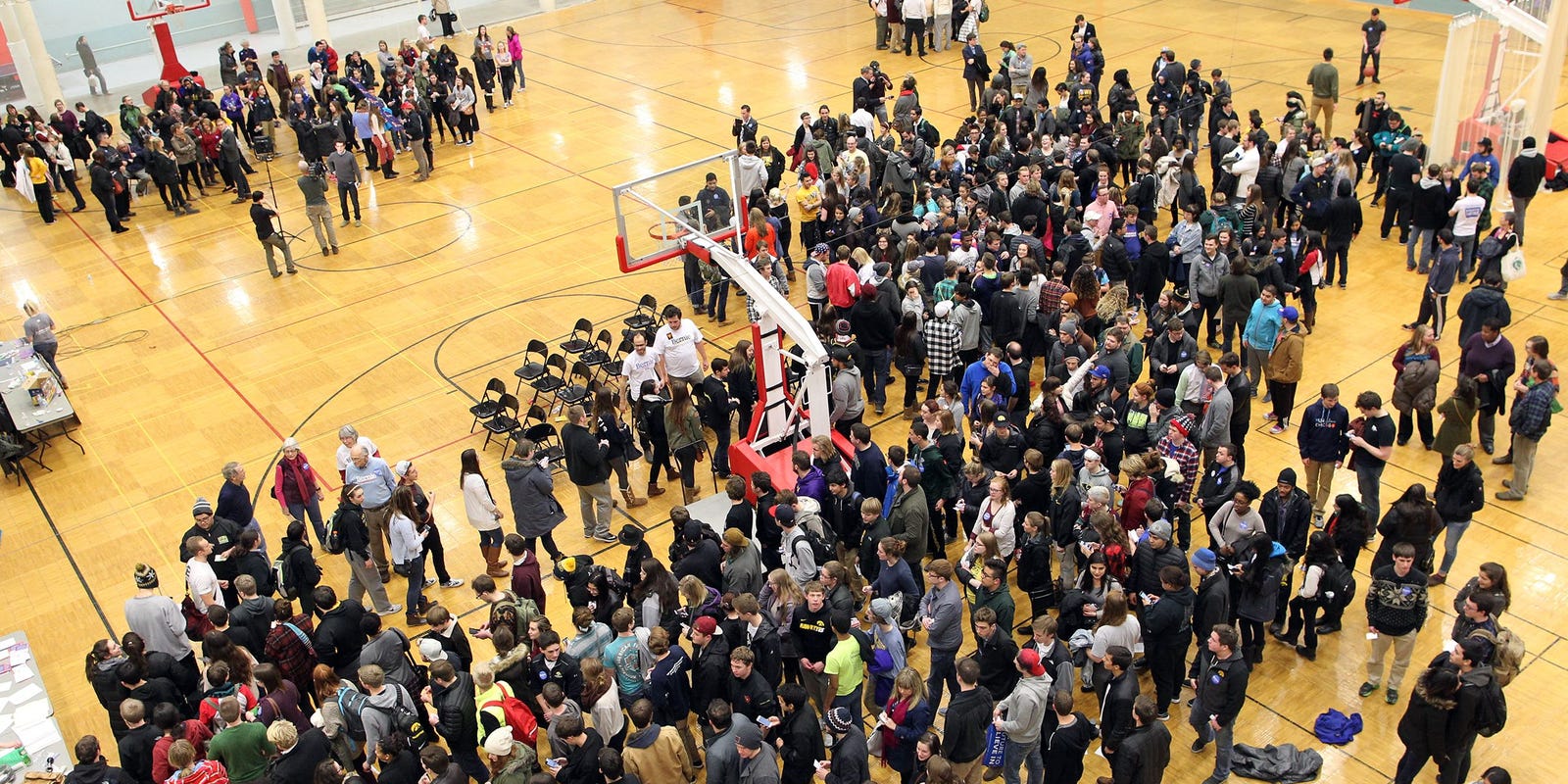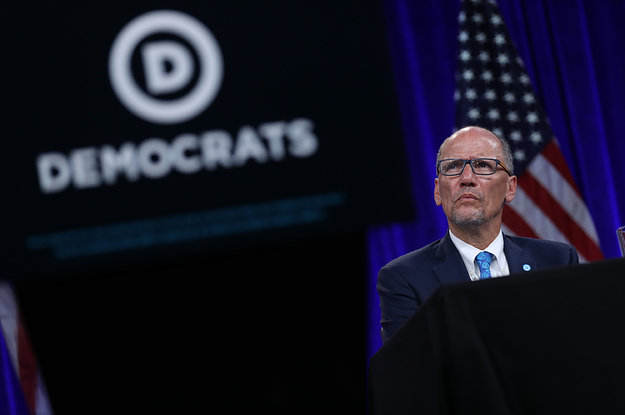Who is Tom Perez?

A few minutes every morning is all you need.
Stay up to date on the world's Headlines and Human Stories. It's fun, it's factual, it's fluff-free.
As the primary battle for the Democratic presidential nomination continues, Tom Perez, Chair of the Democratic National Committee (DNC), holds a pivotal role.
Before taking charge of the DNC, Perez was a lawyer who built his career advocating for immigrants and civil rights. He also served in the administration of President Barack Obama as the head of the Labor Department.
The career of Tom Perez

Tom Perez grew up in Buffalo, New York, as the son of Dominican immigrants. He studied at Brown University before completing a law degree at Harvard University in 1987. After graduating, he joined the US Department of Justice as a civil rights attorney.
Perez rose to the head of the Civil Rights Division and was responsible for, among other cases, investigating the shooting of Trayvon Martin as a possible hate crime. The 17-year-old Martin, who was black, was killed by George Zimmerman, a “self-appointed neighborhood watch captain,” on February 26, 2012.
The investigation into the shooting grew to include the conduct of the police department of Sanford, Florida, where the shooting occurred.
As a civil rights attorney, Perez built a career on investigating police misconduct. He was also focused on combating the discrimination of the LGBTQ community and on voter suppression.
In a 2011 interview with the Center for American Progress, Perez said, “There’s this narrative that we’re in post-racial America and discrimination is a thing of the past. I wish they were right. But we see in our voting practice that this is not the case.”
In September 2013, President Obama added Perez to his cabinet as the Secretary of Labor. He was brought on to be a “fierce advocate” for American workers, with a special emphasis on Latino citizens who make up over 15% of the country.
In addition to his work as a lawyer, in 2002, Perez was elected to the Montgomery County Council in Maryland, becoming the first Latino member of the council.
Chair of the Democratic National Committee
Perez became the DNC chair in February 2017 after a contested election with former Representative Keith Ellison. Ellison, who is now the attorney general of Minnesota, was favored by the progressive wing of the Democratic Party, which currently supports Sanders in the presidential campaign. Perez, who was supported at the time by Obama and Biden, earned 235 votes to Ellison’s 200.
Perez followed Donna Brazile in the role. Brazile, a political strategist and former commentator for CNN, became the interim chair of the committee after the 2016 resignation of Debbie Wasserman Schultz, who had served in the role since 2011.
Wasserman’s resignation came in the wake of leaked DNC emails that revealed her preference for Hillary Clinton in the latter’s contest against Senator Sanders in the 2016 election.
Perez’s role as the chairman of the party is multifaceted. It has been described as “part cheerleader, part fundraiser, part organizer and recruiter, part public messenger.” Perez’s rise to DNC chair came after an election in which the Republican Party secured control of not only the presidency, but both chambers of Congress.
With the 2020 election ahead of him, Perez is faced with the “no-win situation” of attempting to unite the centrist and progressive wings of the party in opposition to President Donald Trump.
Having entered the role with the support of Obama and Biden, he is seen by some as an “establishment” figure in the party. That perception comes with risks if the primaries don’t crown a clear winner between Biden and Sanders.
The Iowa caucus “debacle”

On February 3, the primary season for the 2020 election began with the Iowa caucus. It was supposed to give Americans the first glimpse of which candidates had set themselves apart from the pack. Instead, due to technological glitches and reporting errors, the final results of the caucus weren’t known for days.
Perez was criticized by members of the Democratic Party for how he handled the situation, with many feeling he erred by letting a full day pass before addressing the delays. Some also expressed a belief that Perez had attempted to distance himself from the problems in order to lay the blame on party officials at the state level.
There were calls for Perez to step down after Iowa, though those seem to have died down as the primaries have continued mostly without issue.
Superdelegates in a brokered convention

In the 2016 election, there was considerable discussion about the role “superdelegates” might play to keep Sanders from winning the election. Unlike regular delegates which vote based on the support candidates receive in the primaries, superdelegates are members of the Democratic Party who can vote for whichever candidate they choose.
Ultimately, both candidates fell short of the 2,383 delegates necessary to win the nomination outright. Clinton won 2,220 delegates to Sanders’ 1,831, with 591 superdelegates voting for Clinton and 48 for Sanders. Clinton won the nomination, but lost to Trump in the general election.
The debate over the role of superdelegates led Perez to enact a rule change for the DNC. In 2020, superdelegates will not be allowed to vote on the first ballot at the Democratic Convention in July. If a candidate wins based purely on primary delegates, superdelegates will not vote at all. This would ensure the Democratic Party could not overrule the votes of the people.
However, if no single candidate wins enough delegates to earn the nomination, that will create a brokered convention (or contested convention).
In that situation, superdelegates would be able to vote and could ultimately decide the winner of the nomination. While Perez has stated the party should not interfere in elections, he angered some in 2018 by endorsing New York Governor Andrew Cuomo in his successful re-election bid.
So far, Perez has not openly endorsed a candidate in the 2020 presidential campaign.
[article_ad]




Comments ()